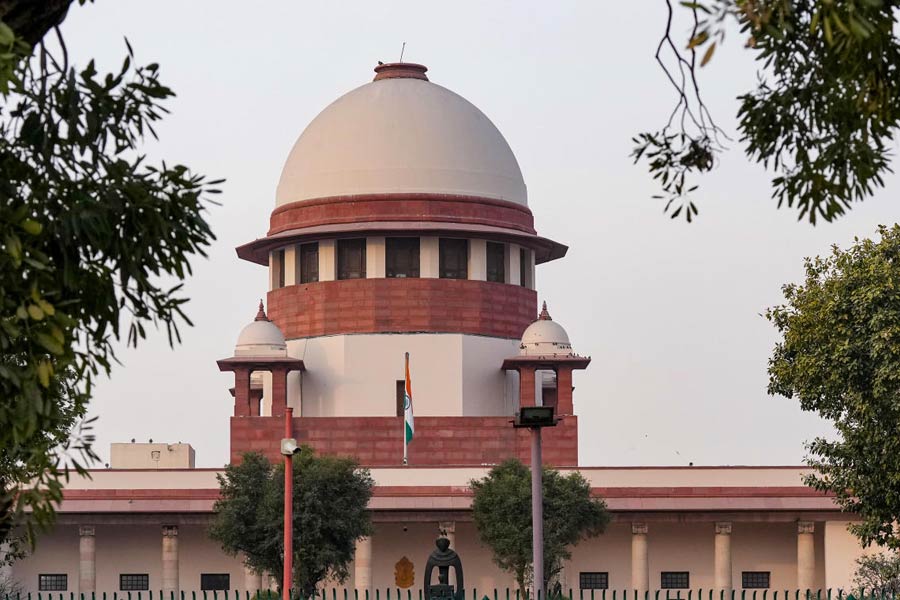The Supreme Court on Friday expressed serious concern over the delay by Punjab and Tamil Nadu governors in giving assent to bills passed by the respective state legislatures and reminded that under Article 200 of the Constitution, the governor had to act on the aid and advice of the council of ministers.
A bench headed by Chief Justice of India D.Y. Chandrachud issued notice to the Centre and sought the assistance of the attorney-general R. Venkataramani or solicitor-general Tushar Mehta in the matter.
Punjab is ruled by the AAP while and the DMK is in power in Tamil Nadu.
The bench, which included Justices J.B. Pardiwala and Manoj Misra, issued the directions on separate petitions filed by Tamil Nadu and Punjab accusing their respective governors R.N. Ravi and Bhanwarilal Purohit of blocking several bills passed by the two states resulting in a constitutional deadlock and virtually bringing the administration to a halt.
The bench also held that the Punjab governor could not question the validity of the budget session convened by the Assembly in June in which four bills were passed. Purohit chose to withhold them on the ground of testing the validity of the session as it was convened without being prorogued.
“Attempt to cast any doubt on the session of the legislature would be fraught with great perils to democracy,” CJI Chandrachud told additional solicitor-general Satyapal Jain, appearing for the Punjab government.
“You are playing with fire. How can the governor say the bills passed by the Assembly are invalid because the session was irregular?” the bench asked the state law officer.
The court, however, told senior advocate Abhishek Manu Singhvi that the Speaker extending the state Legislative Assembly indefinitely also did not augur well for democracy.
“Your budget session is now going into monsoon session, the monsoon will go into winter. If democracy has to work… you cannot ignore the rules of the House,” the bench said, pointing out that the session should have been prorogued before being reconvened instead of proceeding indefinitely.
The court made the observation after Jain complained that the session, which was supposed to end in March, was reconvened June and October without being prorogued.
The bench also said it was improper on the part of the chief minister to make personal remarks against the governor that he was an “idle person”.
On a separate petition filed by the Tamil Nadu government, the bench said: “The issues which have been raised in the writ petition raise a matter of serious concern. From the tabulated statements which have been submitted before this court, it appears that as many as 12 bills which have been submitted to the governor under Article 200 have not elicited any further action...”.











